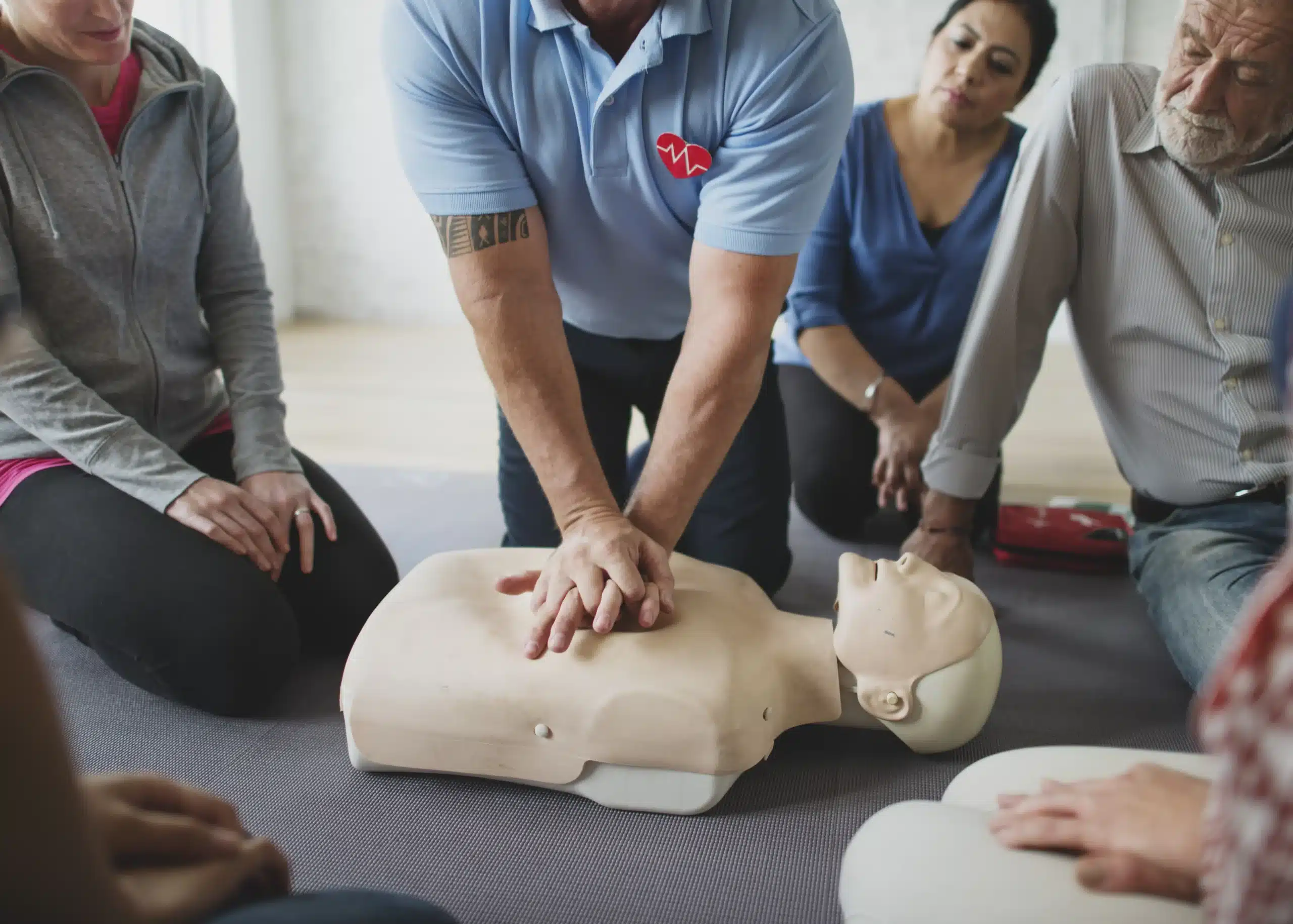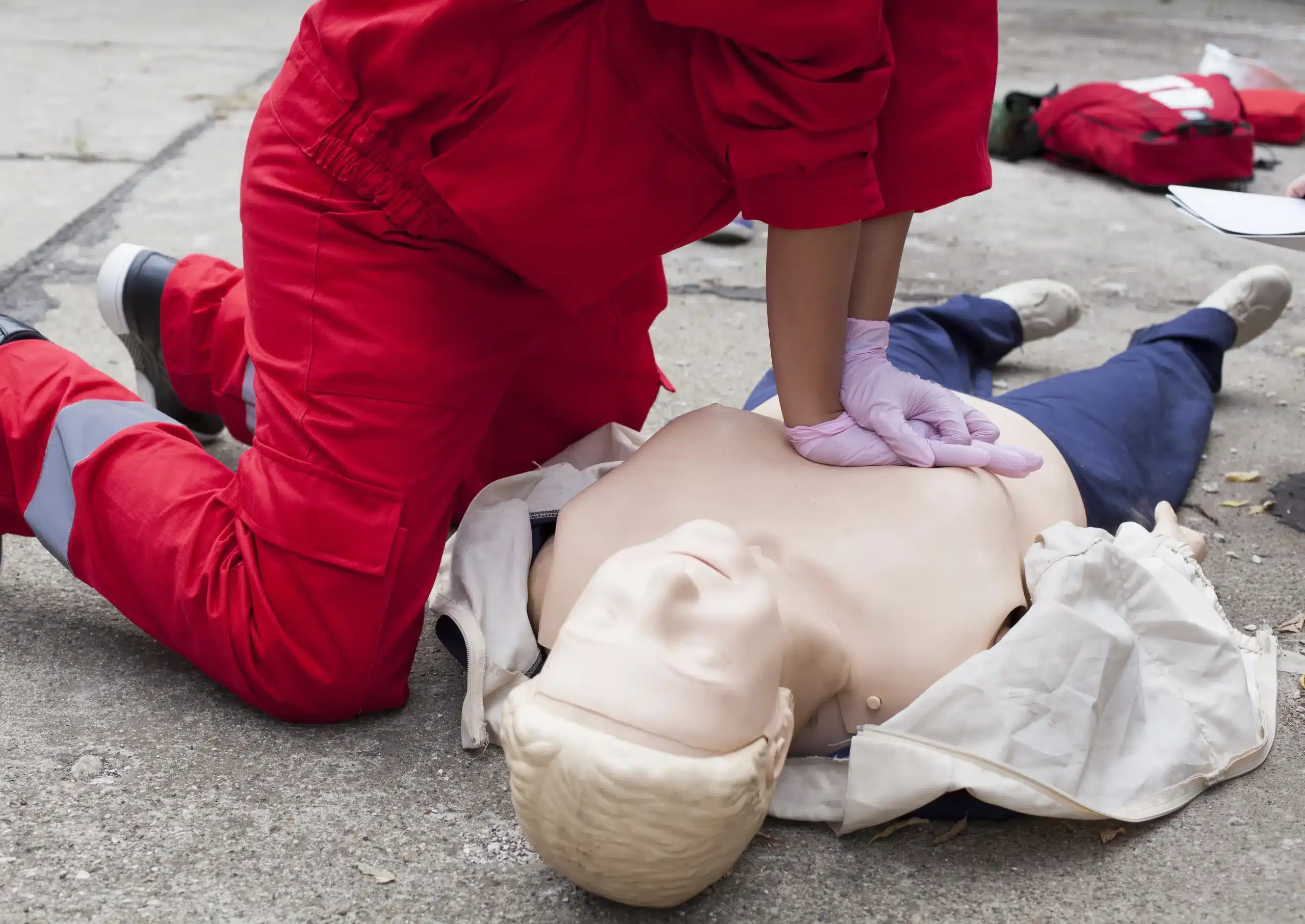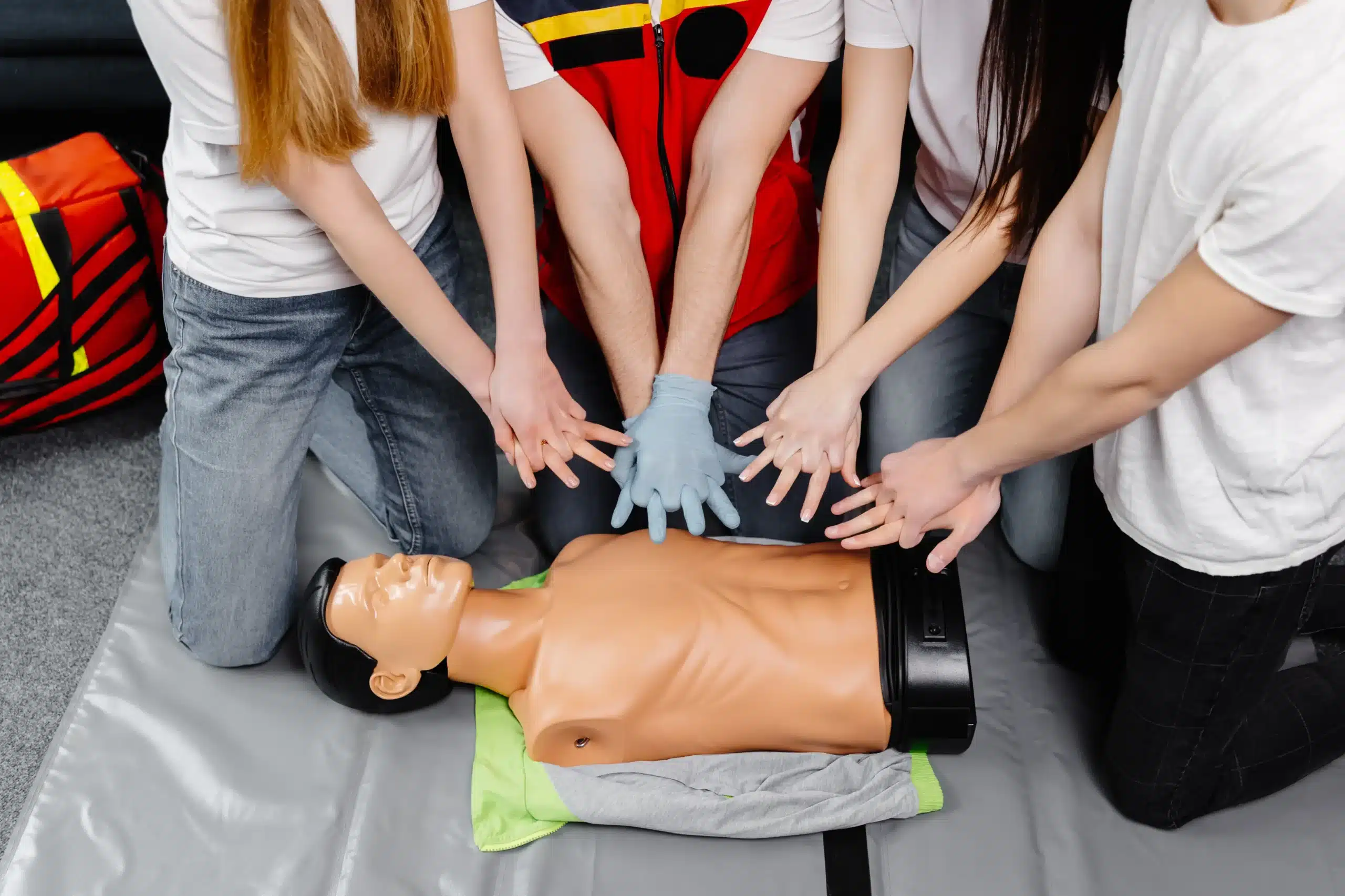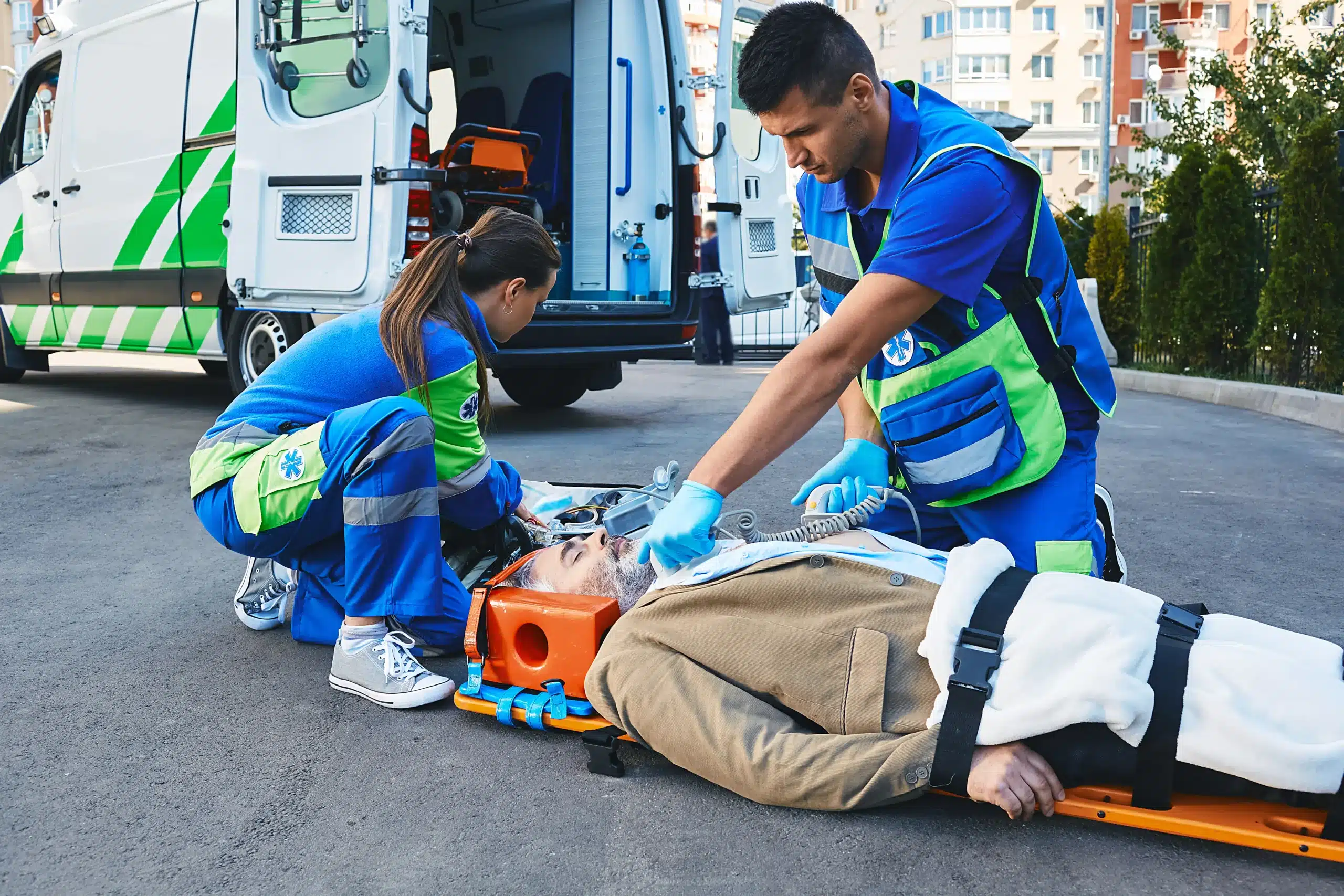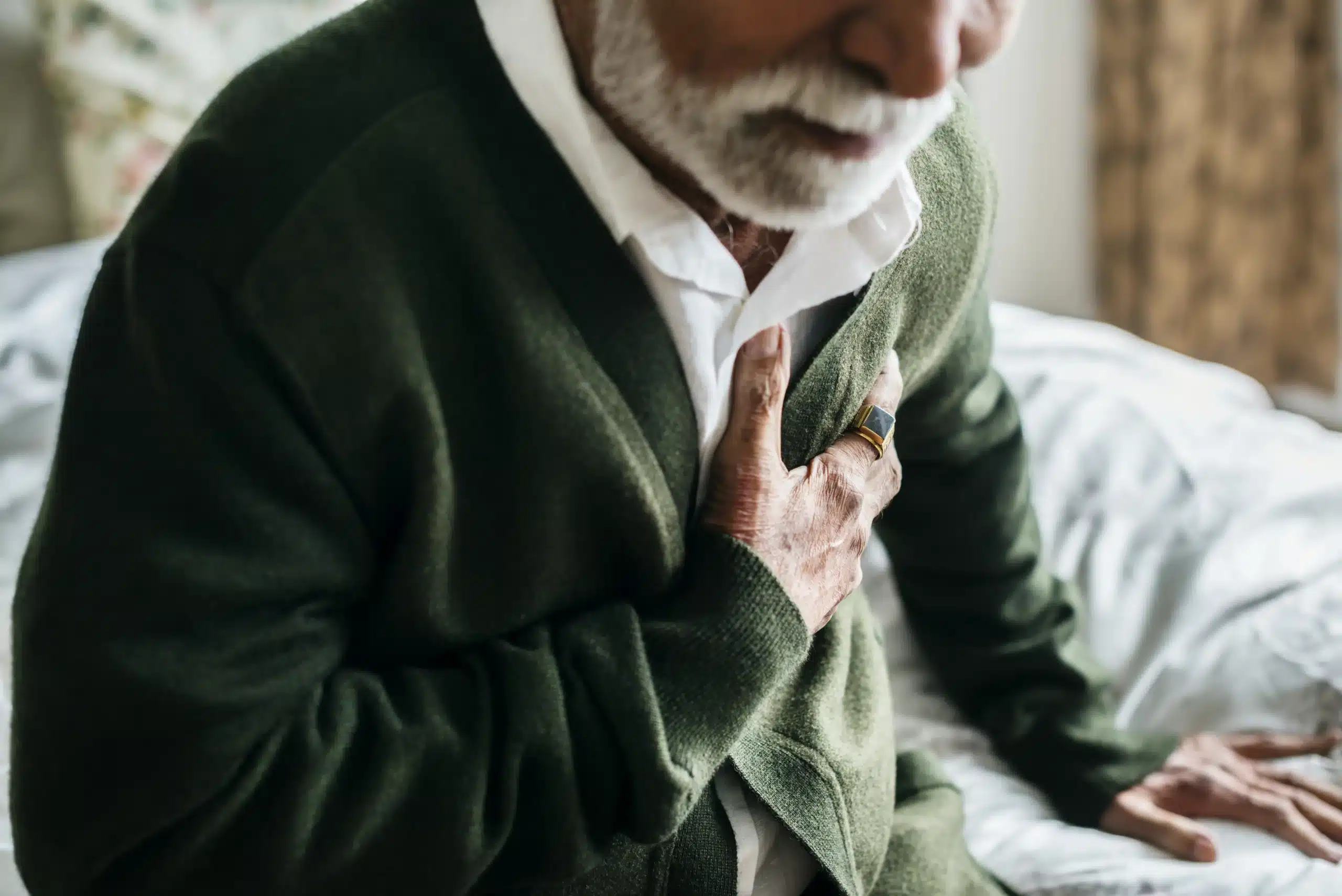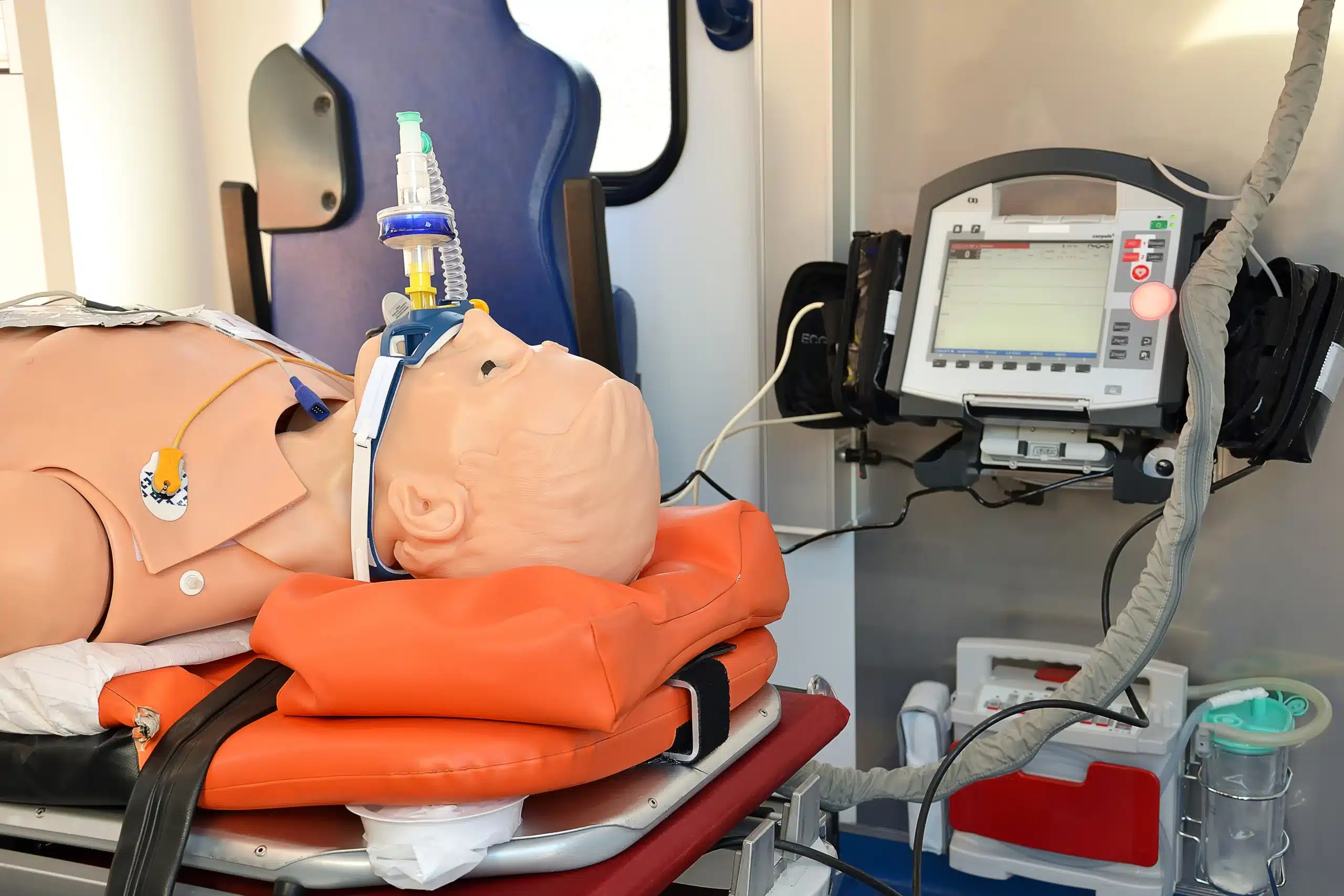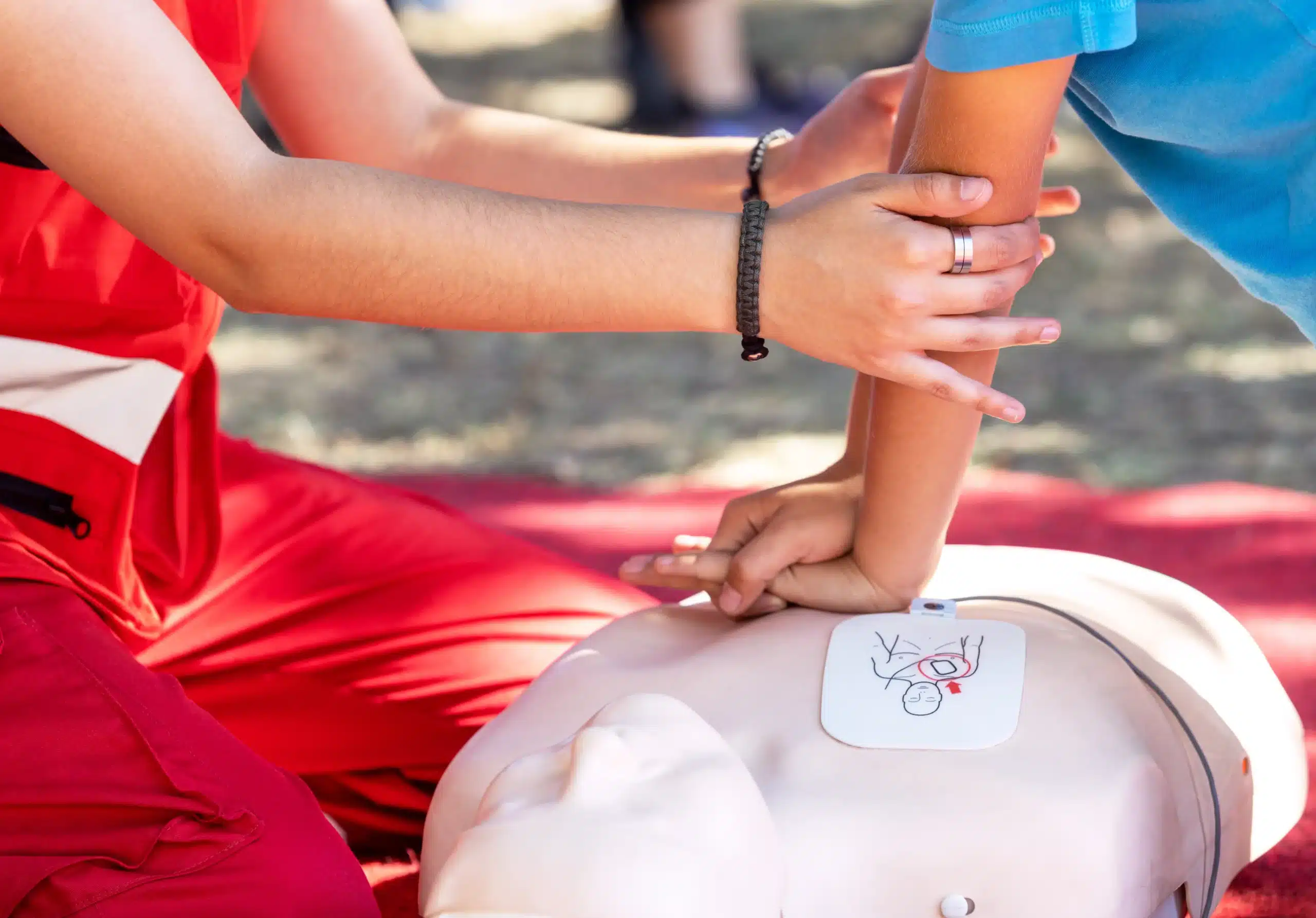In the face of a medical emergency, seconds can matter. Being equipped with the skills to perform CPR can make all the difference. This guide is your go-to resource for CPR certification in Stockton, providing a practical overview of training options, costs, and the benefits of becoming certified. We’ll explore the various types of CPR certifications available, discuss what to expect during training, and help you choose the right course for your specific needs. From finding reputable training centers in Stockton to understanding the renewal process, this guide simplifies CPR certification, empowering you to become a confident first responder.
Key Takeaways
- CPR certification equips you with life-saving skills and builds confidence for emergencies. Choose from various CPR/AED, First Aid, and BLS courses to match your specific needs.
- Find a CPR class that fits your learning style and schedule. Options include in-person training, online courses, and blended learning formats. Consider factors like cost, location, and instructor qualifications when selecting a provider.
- Maintain your CPR skills through regular practice and renewal courses. Certification is typically valid for two years. Stay prepared and ready to respond effectively by refreshing your knowledge and skills periodically.
What is CPR Certification?
CPR certification formally recognizes that you’ve completed training in cardiopulmonary resuscitation (CPR) and can respond effectively in emergencies. While it’s not required to have CPR certification to help someone in need, it equips you with life-saving skills. This training covers essentials like chest compressions, rescue breaths, and how to use an Automated External Defibrillator (AED). CPR classes typically run from two to four hours, depending on the course format and content. After you complete the training, you’ll receive a certification card, typically valid for two years. Getting certified not only prepares you for emergencies but also builds confidence. For more information on CPR training and certification in the Stockton area, explore resources like the Northern CA CPR Directory.
CPR Certification Types
Knowing which CPR certification is right for you can feel overwhelming. This section breaks down the most common types to help you choose the best fit.
Basic Life Support (BLS)
Basic Life Support (BLS) certification is a must-have for healthcare providers, first responders, and anyone in a medical field. BLS teaches comprehensive life-saving techniques, including CPR, AED use, and airway management. This training emphasizes teamwork, high-quality CPR, and systematic approaches to patient care. You can find more information about BLS certification on the Tracy CPR Classes website.
Adult and Pediatric CPR/AED
Adult and Pediatric CPR/AED training focuses on providing CPR and using an AED on both adults and children. This course is perfect for teachers, coaches, parents, childcare providers—anyone who regularly interacts with people of all ages. Learning these skills can make a real difference in an emergency. The American Red Cross offers convenient CPR/AED training in nearby Stockton.
First Aid/CPR/AED
The most comprehensive option, First Aid/CPR/AED training combines the skills from the previous two certifications with essential first aid knowledge. This course covers everything from treating minor injuries like cuts and burns to responding to more serious situations like choking or allergic reactions. It’s a great choice for those wanting a well-rounded skill set to handle any situation. For more information about CPR classes in Stockton, check out this helpful guide.
Where to Get CPR Certified in Stockton
Finding the right CPR certification course is crucial, both for your confidence and your credentials. Stockton offers a variety of options to fit different learning styles and schedules. Here’s a rundown of some reputable providers:
Tracy CPR Classes
For those in and around Stockton, Tracy CPR Classes offers a convenient option for American Heart Association (AHA) certifications. They cover a range of courses, from basic CPR to more advanced certifications like BLS for healthcare providers. Their focus on high-quality training and excellent customer service makes them a popular choice. Plus, their convenient location serves nearby cities like Tracy and Lodi. For a comprehensive list of resources, check out their Northern CA CPR directory. They also offer specialized training like the EMSA Child Care Health & Safety program and RQI courses.
American Red Cross
The American Red Cross is a well-known and respected provider of CPR and first aid training. With their established curriculum and experienced instructors, you can trust the quality of their CPR/AED training. They offer a range of courses and often have flexible scheduling options.
Professional CPR
Professional CPR has been providing CPR, First Aid, BLS, and AED training in Stockton since 2001. They offer courses for both individuals and organizations, making them a versatile option.
Safety Training Seminars
Safety Training Seminars offers a comprehensive selection of AHA-certified courses, including CPR, BLS, ACLS, PALS, and First Aid. Their extended daily hours (8 am to 10 pm) provide flexibility for busy schedules. Learn more about their courses and schedule.
Local Community Colleges
Often, local community colleges offer CPR certification courses through their health and safety programs. These courses are typically more affordable and taught by qualified instructors. Check with your local community college for more information.
CPR Class Formats and Duration
Choosing the right CPR class format depends on your learning style, schedule, and certification needs. Let’s break down the most common options:
In-Person Training
In-person CPR training provides a comprehensive learning experience. You’ll engage directly with certified instructors, ask questions in real-time, and practice skills on mannequins. This hands-on approach is ideal for those who prefer tactile learning and benefit from immediate feedback. In-person classes typically meet OSHA requirements and offer a two-year certification upon successful completion. This format remains the gold standard for mastering CPR techniques and building confidence. For those in the Tracy, Stockton, and Lodi areas, Tracy CPR Classes offers a variety of in-person courses.
Online Courses
Online CPR courses offer flexibility and convenience, allowing you to learn at your own pace from anywhere with internet access. This format is perfect for busy schedules or limited access to in-person classes. However, online-only courses typically don’t include the hands-on practice crucial for truly mastering CPR and may not meet all OSHA requirements. While these courses can refresh your knowledge or supplement hands-on training, they shouldn’t replace it. The American Red Cross offers various online CPR resources.
Blended Learning Options
Blended learning combines online coursework with in-person skills assessments. This format lets you learn the theory online at your own pace, then demonstrate your skills in a classroom. Blended learning ensures you receive both the knowledge and practical skills necessary for certification. This approach is a great option for those who want a thorough understanding of CPR but need a flexible learning schedule.
Typical Class Durations
The length of a CPR class varies depending on the format and content. In-person and blended learning classes typically range from two to four hours. Online courses can be shorter, but remember, they often lack the crucial hands-on component. When choosing a class, consider the depth of instruction and the time you have available. Tracy CPR Classes offers a range of course durations. You can find more information on their website.
CPR Certification Cost and Value
Getting CPR certified is an investment in yourself and your community. Understanding the costs associated with training, and recognizing the inherent value, helps you make an informed decision. Let’s break down the typical expenses for CPR certification in Stockton.
Average Stockton Pricing
CPR class prices in Stockton usually fall between $40 and $80. This range depends on several factors, including the type of course (CPR/AED, BLS, First Aid) and the training center providing the instruction. For example, a basic CPR course might be closer to the lower end of that range, while a more comprehensive BLS course for Healthcare Providers could be closer to the higher end.
Additional Fees
While the advertised course fee covers the core instruction, be aware of potential additional costs. Some training providers might charge extra for things like certification cards, course materials, or equipment. However, many providers include these extras in the initial cost. It’s always a good idea to ask about any potential extra fees upfront when registering for a course.
Discounts and Promotions
Keep an eye out for discounts and promotions that can make your CPR training more affordable. Some organizations periodically offer discounts on training supplies or even the courses themselves. Group discounts might also be available, so if you’re signing up with friends or colleagues, be sure to inquire. Check with providers like the American Red Cross for potential savings.
Group Training Rates
If you need to train a group, such as your workplace staff or a community organization, look into group training rates. Many CPR training providers offer discounted rates for on-site group classes, making it a cost-effective way to ensure everyone gets certified. This can be especially convenient, as the training can come to you. Contact training centers like Tracy CPR Classes to discuss options and pricing for group training.
CPR Certification Validity and Renewal
CPR certification, like many professional credentials, isn’t a one-and-done deal. Understanding how long your certification is valid and how to renew it is crucial for maintaining your skills and readiness to respond to emergencies.
Certification Duration
CPR certifications are typically valid for two years. This timeframe reflects the understanding that skills and knowledge can diminish over time. This two-year validity is a standard set by organizations like the American Heart Association and the American Red Cross. Knowing your certification’s expiration date is essential, so mark your calendar or set a reminder to avoid any lapse in your credentials.
Renewal Steps
Renewing your CPR certification is straightforward. Tracy CPR Classes offers renewal courses designed to refresh your skills and update your knowledge on the latest CPR guidelines. These courses cover the same core material as initial certification courses but are often more concise, focusing on key skills and updates. Check the Tracy CPR Classes website for upcoming courses and register online. It’s always best to renew before your current certification expires to ensure continuous coverage.
Maintaining Current Skills
While your CPR certification is formally valid for two years, it’s important to remember that skills can fade. Regular practice is key to maintaining your confidence and competence in performing CPR effectively. Even simple practices like reviewing the steps or watching refresher videos can make a difference. Consider attending a refresher course or practicing with friends or family to keep your skills sharp. Remember, even if your certification has lapsed, it’s always better to attempt CPR than to do nothing in a cardiac arrest situation.
What to Expect in CPR Training
CPR training is designed to be accessible and empower you to save lives. Whether you’re a healthcare provider, parent, or community member, you can find a Stockton CPR class that fits your needs. These classes build confidence in emergency situations by teaching lifesaving techniques.
Course Content Overview
Expect a comprehensive overview of CPR techniques and related topics. You’ll learn how to recognize the signs of a cardiac arrest, when and how to call 911, and the importance of early intervention. Courses cover essential skills like chest compressions, rescue breaths, and how to use an automated external defibrillator (AED). Tracy CPR classes follow American Heart Association guidelines, ensuring you receive high-quality, up-to-date training. We also offer specialized training like our EMSA Child Care Health & Safety program for childcare providers.
Hands-On Practice
A significant portion of CPR training involves hands-on practice. You’ll work with a CPR training mannequin to develop muscle memory and proper technique. This practical experience helps you understand exactly where and how hard to press for effective chest compressions. Our instructors create a supportive learning environment where you can ask questions and practice until you feel comfortable.
Assessment and Certification
To earn your CPR certification, you’ll complete a skills assessment to demonstrate your proficiency. CPR certifications are typically valid for two years. Course length varies from approximately two to just over four hours, depending on the format and content. All our courses lead to official AHA certification cards, valid for two years. This ensures your certification meets workplace requirements and provides credibility. You can renew your certification with us when the time comes.
Choose the Right CPR Course
Finding the right CPR course involves understanding your specific needs, comparing available options, and verifying instructor qualifications. Taking the time to research ensures you receive high-quality training and the right certification.
Assess Your Needs
Before you search for a CPR class, ask yourself why you need this training. Are you a healthcare professional requiring BLS certification? Are you a parent wanting to learn CPR for infants and children? Or are you fulfilling a job requirement? Understanding your needs helps narrow your search. For example, healthcare providers in Tracy, Stockton, and Lodi may find specialized training like the EMSA Child Care Health & Safety program beneficial. A childcare provider, on the other hand, might prioritize a combined CPR/First Aid course. Consider what specific skills you want to gain from the training.
Compare Course Offerings
Once you know what type of training you need, compare different course offerings. Consider factors like class format (in-person, online, or blended learning), duration, and cost. In-person classes offer hands-on practice and direct interaction with instructors, often leading to a two-year certification that meets OSHA requirements. Online courses provide flexibility, while blended learning combines online components with in-person skills sessions. Typical CPR class prices in Stockton range from $40 to $80, depending on the provider and course type. Check if the training center offers certifications valid for two years, like those from Tracy CPR Classes, a woman-owned AHA Training Center. Think about what learning style best suits you and your schedule.
Instructor Qualifications
The quality of your CPR training depends heavily on the instructor’s expertise. Look for certified instructors with extensive experience, ideally affiliated with reputable organizations like the American Heart Association or the American Red Cross. Experienced instructors can effectively demonstrate techniques, answer questions thoroughly, and create a positive learning environment. Check the instructor’s credentials and look for testimonials or reviews from previous students. Tracy CPR Classes emphasizes its commitment to high-quality training and excellent customer service—important factors when making your decision. You can also explore our Northern CA CPR Directory for a comprehensive list of training centers and instructors in your area.
Common CPR Certification Concerns
It’s natural to have questions before signing up for a CPR class. Here are some common concerns and how to address them:
Time Commitment
One of the first questions people ask is, “How long does it take to get CPR certified?” Most CPR certification courses in Stockton fall between two and four hours, depending on the course type and format. Tracy CPR Classes offers a range of courses, including BLS certification for healthcare providers, to fit your schedule.
Skill Retention
CPR skills can decline over time, which is why regular practice and refresher courses are key to maintaining proficiency. Consider adding a renewal reminder to your calendar so you’re prepared when your certification nears its two-year expiration date. This will help you stay up-to-date and ready to respond in an emergency.
Cost Considerations
CPR classes in Stockton typically range from $40 to $80. Tracy CPR Classes offers competitive pricing and occasionally runs promotions, so it’s always a good idea to check our website for current rates. The value of CPR training goes beyond the price tag—it equips you with skills that can save a life.
Instruction Quality
The quality of your CPR training directly impacts your confidence and competence. Look for certified instructors using an accredited curriculum, like the courses offered through the American Heart Association. Hands-on practice and personalized feedback are essential elements for developing solid CPR skills. Tracy CPR Classes prioritizes high-quality instruction and individual attention in all our courses.
Benefits of CPR Certification
Getting CPR certified isn’t just about acquiring a skill; it’s about gaining confidence and empowering yourself to make a difference. Whether you’re a healthcare professional, a parent, or simply a member of the community, CPR certification offers a range of personal and professional advantages.
Prepare and Build Confidence
CPR training provides you with the knowledge and skills to respond effectively in emergencies. Quality programs, like those offered at Tracy CPR Classes, equip you with the tools to perform CPR safely and effectively. This preparation instills confidence, allowing you to react calmly and decisively in high-pressure situations. Knowing you can potentially save a life brings a sense of empowerment and reduces feelings of helplessness during medical crises. Find a Stockton CPR class that fits your schedule and learning style.
Advance Your Career
In many professions, CPR certification is a valuable asset. For healthcare providers, it’s often a requirement and demonstrates a commitment to patient safety. But even outside the medical field, CPR certification can enhance your resume. It shows employers you’re proactive, responsible, and possess valuable life-saving skills. CPR certification can open doors to new opportunities, whether you’re a teacher, coach, childcare provider, or in any field where safety is a priority. Consider getting your BLS certification in Tracy to gain comprehensive life support skills.
Contribute to Community Safety
CPR-certified individuals play a vital role in community safety. Bystander CPR can significantly increase survival rates in cardiac arrest cases. Learning CPR empowers you to assist family, friends, coworkers, or even strangers in their time of need. You become an active participant in creating a safer environment for everyone. The American Red Cross also emphasizes the importance of community preparedness and the impact individuals can have when equipped with these skills. Becoming CPR certified is a powerful way to contribute to the well-being of your community.
Related Articles
- CPR Courses in Tracy: Your Complete Guide – Tracy CPR Classes
- Why CPR is More Important Than Ever
- Online CPR Classes in Lodi: Your Complete Guide – Tracy CPR Classes
- Find CPR Classes in Stockton: A Comprehensive Guide
- CPR Renewal in Tracy: Your Complete Guide – Tracy CPR Classes
Frequently Asked Questions
How do I choose the right CPR class for me? Think about why you want to learn CPR. Are you a healthcare professional, a parent, or looking to fulfill a job requirement? This will help you narrow down the type of course you need (like BLS for healthcare providers or a combined CPR/First Aid course). Then, consider factors like the class format (in-person, online, or blended), how long the class is, and the cost. Your learning style and schedule will also play a role in your decision. Finally, check the instructor’s qualifications and experience.
What can I expect during a CPR class? You’ll learn how to recognize the signs of a cardiac arrest, how to call for help, and the importance of early intervention. The class will cover essential skills like chest compressions, rescue breaths, and how to use an AED. A big part of the class will be hands-on practice with a training mannequin so you can develop proper technique and build muscle memory. There’s also an assessment at the end to make sure you’re proficient in the skills.
How much does CPR certification cost, and how long is it good for? CPR classes typically range from $40 to $80, depending on the type of course and the training center. Most certifications are valid for two years. Look for training centers that offer renewal courses to refresh your skills when your certification is about to expire.
What if I’m nervous about not being able to remember the skills? It’s normal to feel a little apprehensive, but CPR training is designed to be straightforward and accessible. Hands-on practice during the class helps build muscle memory, and many resources are available to help you refresh your skills between classes. Even a quick review of the steps or watching a refresher video can make a big difference. Remember, even if your certification has expired, attempting CPR is always better than doing nothing in a life-threatening situation.
Why should I get CPR certified if I’m not in the medical field? Knowing CPR can empower you to help in any emergency. You could be the difference between life and death for a family member, friend, coworker, or even a stranger. Plus, having CPR certification on your resume shows employers you’re proactive and equipped to handle emergencies.
